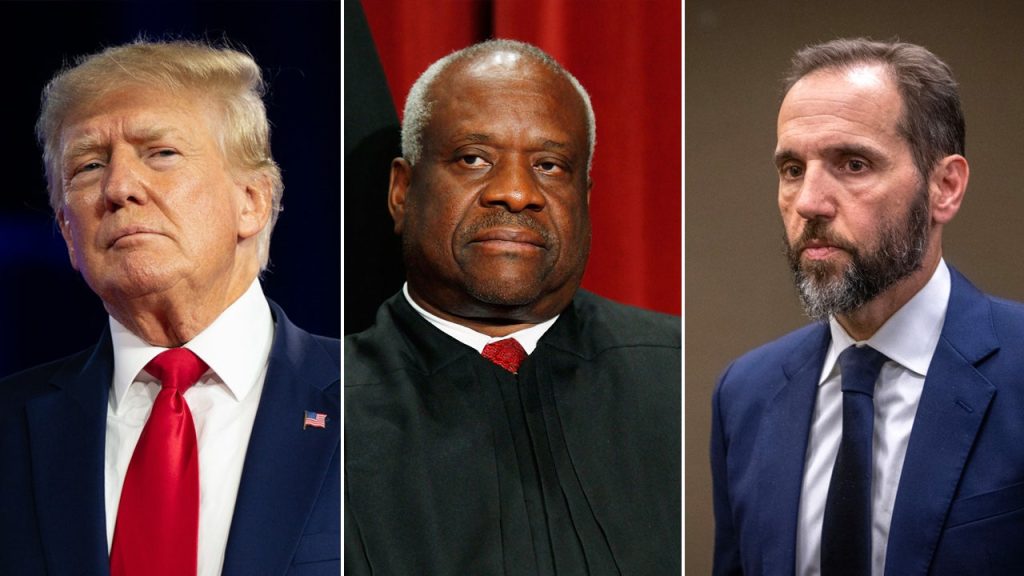Supreme Court Justice Clarence Thomas posed a challenge to Special Counsel Jack Smith’s charges against former President Donald Trump. Trump’s defense argues that he is immune from prosecution for actions taken while in office, but the question of whether Smith has the authority to bring charges is also at the center. Trump’s attorney, John Sauer, stated that they agree with the analysis provided by former Attorneys General Meese and Mukasey, who question Smith’s authority to prosecute Trump. Meese and Mukasey argued that Smith was never confirmed by the Senate for his position, raising concerns about the rule of law in cases like this.
Meese and Mukasey question whether Smith has the lawful authority to prosecute Trump, considering he was never confirmed by the Senate to any position. They argue that only properly appointed federal officers can pursue federal prosecutions, and Smith’s position as special counsel may not meet those criteria. Trump’s legal team has objected to Smith’s appointment in the charges against Trump, claiming that it contradicts Smith’s supposed independence when compared to the White House and the attorney general. The tension between Smith’s supposed independence and his accountability to the Biden Administration raises concerns about the motives behind the charges against Trump.
The special counsel’s office has defended Smith’s appointment by arguing that the attorney general has the statutory authority to appoint a special prosecutor, which has been upheld by the Supreme Court in previous cases. However, Meese and Mukasey argue that the circumstances surrounding Smith’s appointment as a special counsel are different, as he was not confirmed by the Senate and therefore may not have had the lawful authority to prosecute Trump. Smith, who was a private citizen when appointed by Attorney General Garland, has faced challenges to his appointment in the ongoing case against Trump.
Trump’s attorneys have also raised concerns about the legitimacy of Smith’s appointment in the classified documents case in Florida, pointing out the contradictions in the special counsel’s statements about Smith’s independence. The case has yet to be ruled on by the Florida court, but Trump’s defense is arguing for its dismissal based on the claims that Smith was improperly appointed. The Supreme Court is expected to rule on Trump’s immunity arguments before the end of its term in June, which will likely shed more light on the issues surrounding Smith’s authority and the charges against Trump.













